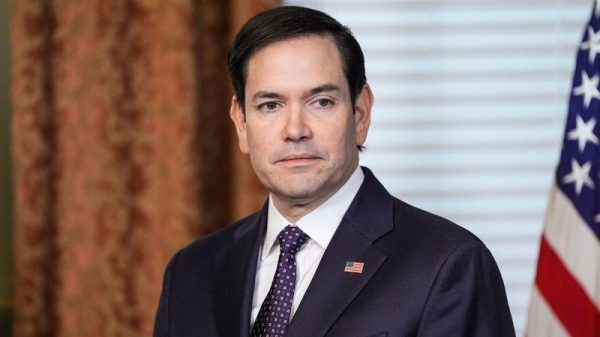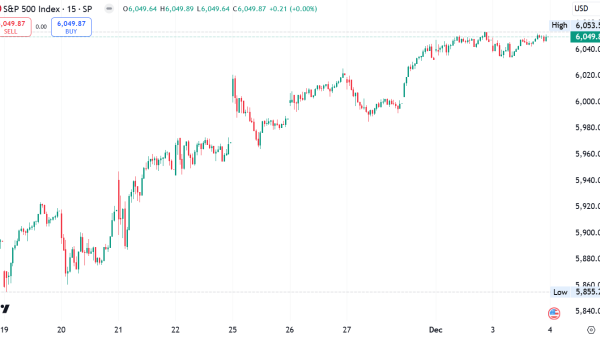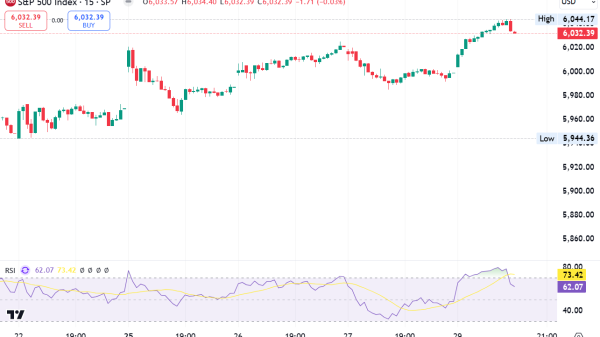In 2014, both Israel and Ukraine featured in conflicts that would set the stage for what we see today. But there was no comparison when it came to whom Americans sympathized with more. While a Gallup poll showed 17 percent considered Ukraine an ally, nearly half — 44 percent — said the same of Israel.
This was, of course, broadly reflective of the United States’ long-standing foreign policy toward Israel, as well as its more complicated and less consequential relationship with Ukraine.
But nine years later, with both countries engaged in wars with the same 2014 adversaries, there is actually relatively little difference in Americans’ appetite for helping out. In both cases, polls show only around half of Americans are on board.
What it suggests: The American right’s increasing isolationist streak and perhaps the Democratic Party’s increasing sympathy for the Palestinians might have seeped into views of helping out in Israel. This has depressed what might otherwise have been — and in the past, has been — more full-throated support.
A Marist College poll released Wednesday tells the tale. While 35 percent of Americans say we should authorize more spending for both countries, 12 percent say we should spend more only on Ukraine, and 14 percent say we should spend more only on Israel. So just shy of half support funding each country’s war effort.
A previous YouGov poll was similar, with only around half of Americans saying we should either increase or keep the same level of support for each country. Quinnipiac University showed 53 percent wanted more aid for Ukraine, while 51 percent wanted more for Israel.
There are partisan differences within those numbers, with more Republicans favoring Israel funding and more Democrats favoring Ukraine funding. But that’s three different polls testing both countries, all producing overall numbers right around 50 percent.
Those numbers are shy of where Israel used to be on such questions. During the 2014 war in Gaza, polls showed around 6 in 10 Americans supported aiding Israel.
So why the shift? And why the similar levels of support, despite our more ironclad and historic alliance with Israel?
One potential factor is increasing Democratic alignment with the Palestinian cause — at least before the Oct. 7 Hamas attack on Israel.
Gallup earlier this year showed Democrats’ sympathies for the first time lying more with the Palestinians (49 percent) than the Israelis (38 percent). This represented a big shift; for the first 19 years of the 21st century, Democrats had been double-digits more sympathetic to the Israelis.
More recent polling suggests Oct. 7 might have cost the Palestinians some sympathy, with the Marist poll showing Democrats split in their sympathies. But that’s still a far cry from just a few years ago.
At the same time, the recent increase in sympathy for Palestinians doesn’t appear to have had a huge impact on opposition to Israel aid. As in 2014, about 4 in 10 Democrats oppose additional funding for Israel.
The bigger impact appears to lie within the Republican Party. While just 24 percent wanted Israel funding decreased in that 2014 CNN poll, the Quinnipiac poll shows 30 percent oppose sending Israel more military aid, and the Marist poll shows close to half oppose either sending money to both countries (40 percent) or just to Israel (5 percent).
That 40 percent who opposed aid to both countries is telling. It’s the culmination of a long shift against international involvement for the GOP — a trend that picked up steam during the Trump administration.
Recent polling from the Chicago Council on Global Affairs showed 53 percent of Republicans said it would be best for the United States’ future if it stayed out of world affairs — the first time that number hit a majority in a half-century of the poll. It was also nearly double the 29 percent who said so early in the Trump administration.
That increase has coincided with Republican officeholders taking a progressively dimmer view of sending money to Ukraine, with future funding looking as if it might struggle to gain a crucial majority of House Republicans. At that point, there would be no guarantee the money would continue to flow.
All the while, Republicans who have criticized the funding have suggested their opposition is less about the particulars or Ukraine’s worthiness than the financial cost — that we can’t afford it and should be spending money to protect the southern border instead. It didn’t matter that this was an invasion of a sovereign European country by an antagonistic world power; it just wasn’t our place, and it cost too much.
It should be little surprise, then, that certain portions of the Republican base might apply that same framing even when the attacked country is a much closer ally — one which has long enjoyed a huge level of support among American Republicans.
Whether the base or party leaders are leading the way on that, though, the result is the same: a lower overall level of support for Israel funding than might otherwise have been expected.






























